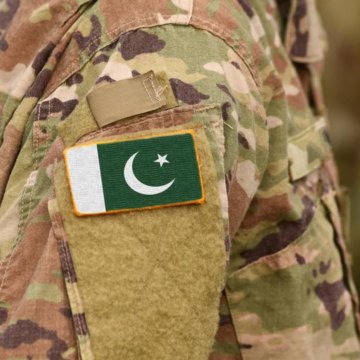- About
- Topics
- Picks
- Audio
- Story
- In-Depth
- Opinion
- News
- Donate
-
Signup for our newsletterOur Editors' Best Picks.Send
Read, Debate: Engage.
| located: | Pakistan, Afghanistan |
|---|---|
| editor: | Shadi Khan Saif |
As s persistent tactic of oppression against the dissent, the powerful army in Pakistan has rounded up and arrested an array of the Pashtun Tahafuz Movement activists in the country’s tribal belt ahead of the key provincial assembly polls.
In the backdrop of the deadly ‘Khar Qamar’ incident, when according to various reliable sources the army opened fire on civilian protesters, the security established has now arrested all key leaders of the robust grassroots rights movement, PTM. Without a doubt, these arrests and prolonged detention of the two elected parliamentarians from the restive tribal areas, Ali Wazir and Mohsin Dawar, are the tools to engineer the forthcoming elections.
The tribal population in FATA region has been ruled by Pakistan for decades under the British-colonial era oppressive and discriminative Frontier Crimes Regulations (FCR) that was first imposed here in 1901. Millions of insurgency-hit people in an area close to the size of Belgium had no right to request change to a conviction in any court and no right to legal representation. This law permitted collective punishment of family or tribe members for crimes of individuals. For ages, the representatives of Wazir, Afridi, Momand, Orakzai, Mehsud, Bajur and other tribes have long been pushing the Pakistani government to immediately repeal this law.
Finally, last year, the then President of Pakistan Mamnoon Hussain signed the landmark Twenty-fifth Amendment to the Constitution of Pakistan which called for the integration of FATA into adjacent Khyber Pakhtunkhwa province.
Next month, the maiden provincial assembly elections are set to take place in FATA. Much to the dejection of PTM, the army officers are actively supporting and promoting their hand-picked individuals while imposing a blanket ban on the rest. Established in 2014 with the aim to protect the fundamental rights of the inhabitants of FATA, the PTM activists have been levelling serious allegations against the army for harbouring the Taliban militants in the tribal belt for attacks across the border in Afghanistan and for running ‘war-economy’.
The state forces in Pakistan need to realise they cannot impose their will on people with force for long.
Pakistan flag on a soldier's tunic. Photo: iStock
